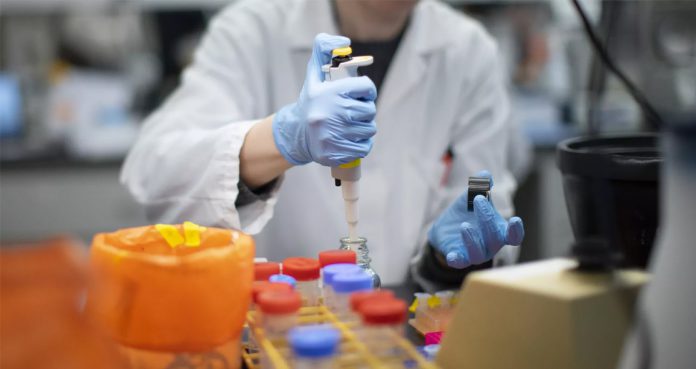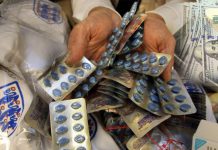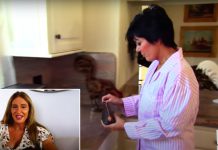The U.S. Centers for Disease Control and Prevention (CDC) failed its first attempt to mass-produce a test kit for diagnosing patients with coronavirus. Hundreds of test kits were shipped to state laboratories, which have come under fire.
It took several weeks for a promised replacement, but still, officials did not permit state and local laboratories to make final diagnoses.
According to critics, the CDC ensured that Americans would be tested for coronavirus (COVID-19) in very few numbers by “imposing stringent” and “narrow criteria.”
On Monday, Trump administration promised a rapid extension of the testing capabilities following mounting criticism of the CDC response.
FDA Commissioner Dr. Stephen Hahn said, “With the help of private companies and academic centers, as many as a million diagnostic tests could be administered by the end of this week.”
However, many experts wonder whether the move has come too late.
So far, the United States has reported 103 confirmed cases and 6 deaths, suggesting that the virus has started circulating in the country.
Federal officials have been taking steps toward expanding testing with a recent surge in US cases. Questions have been raised about the government’s initials steps to manage the outbreak. One of the most disturbing questions of all is – did the CDC’s diagnostic test fail to control the outbreak in the United States?
Former CDC Director Dr. Thomas Frieden said, “Clearly, there have been problems with rolling out the test. There are a lot of frustrated doctors and patients and health departments.” Still, he believes that the situation was improving.
Epidemiologist Dr. Michael Mina from Harvard University said, “The incompetence has really exceeded what anyone would expect with the CDC. This is not a difficult problem to solve in the world of viruses.”
Last month, the CDC distributed three-step diagnostic test kits to state and local health laboratories. Each kit could run around 800 tests. However, it has been found that some components of the test kits were flawed, providing inconclusive results.
The CDC promised a replacement, which never arrived. It did not fully explain why, but it said there was a manufacturing defect.
The agency eventually rolled out a replacement of test kits and permitted a few laboratories to continue using them. Even that batch failed as one working component of the test could not diagnose patients on their own.
Medical professionals across the nation complained about the limitations of the test because of the restrictive criteria and the CDC’s limited testing capacity.
Dr. Lauren Sauer from Johns Hopkins Medicine said the test criteria were “too stringent, and people aren’t getting tested. I’ve heard from so many colleagues that tests were turned down.”
Some experts have even expressed their concern about the duration of the results. “We have been really frustrated because one of the things that is a hallmark of public health labs is that we are usually ‘ready, set, go,’ and here we were — ‘ready, set, wait’,” said Scott Becker, CEO of the Association of Public Health Laboratories.
Meanwhile, other countries have been testing patients in tens of thousands. For instance, China has probably tested millions of people.
Ralph Baric from the University of North Carolina questioned, “How come the South Koreans can do 10,000 tests a day and we can’t? Once you knew you had asymptomatic spread and community spread in China, why is it that the United States of America hasn’t created tens of thousands of tests?”
Usually, the CDC started working on its own test soon after the virus surfaced in China. Dr. Frieden said, “Generally, C.D.C. provides these tests for the world.”
But German scientists were developing their own diagnostic test, which was quickly approved and adopted by the World Health Organization (WHO) for distribution across the world.
The CDC continued to pursue the diagnostic test even after it was turned out to be flawed.
“With FDA approval, the agency could simply have embraced the test used by the WHO,” said Dr. Mina. “It’s just a very American approach to say, ‘We’re the U.S., the major U.S. public health lab, and we’re going to not follow the leader.’”
HHS Secretary Alex Azar said on Sunday, “New kits were released over the past weekend, and more are on the way.”
Epidemiologist Michael Osterholm from the University of Minnesota said, “There has been a silent epidemic of COVID-19 in the United States that is not going to be silent any longer. Testing will show it. This is not a surprise — it shouldn’t have been.” The original article was published in The New York Times.























